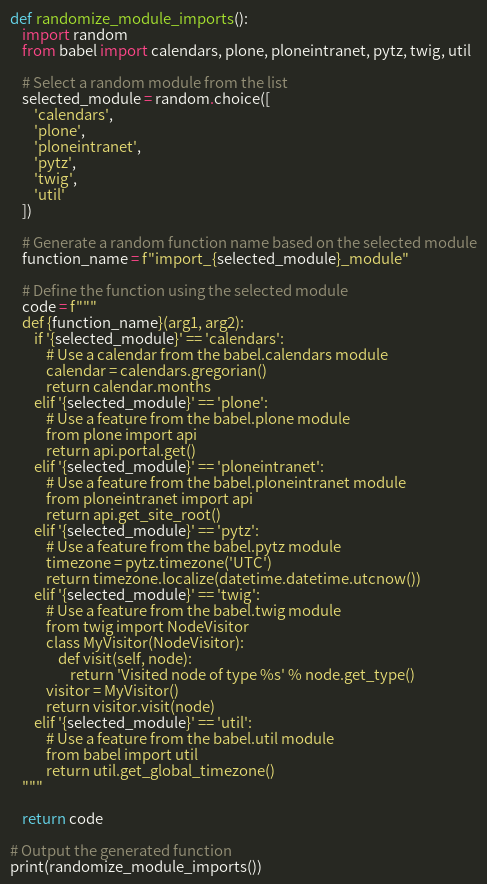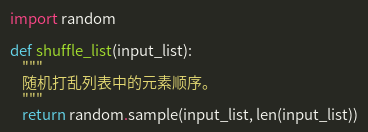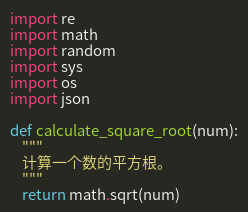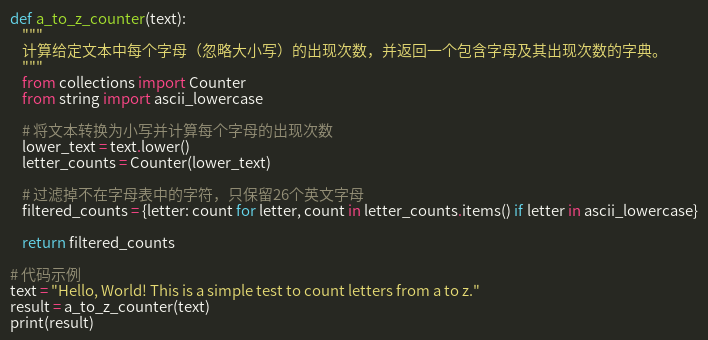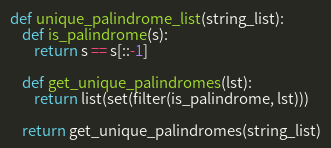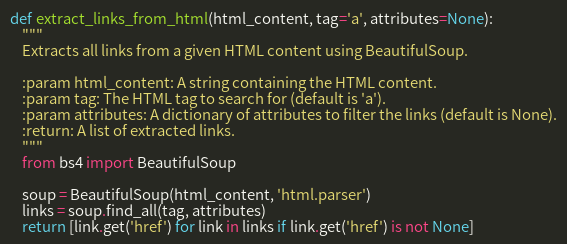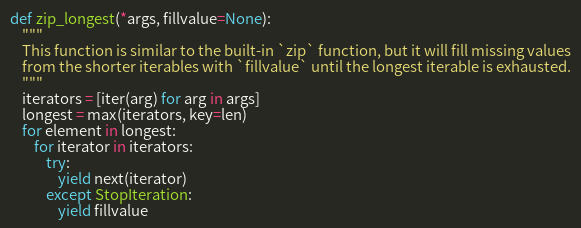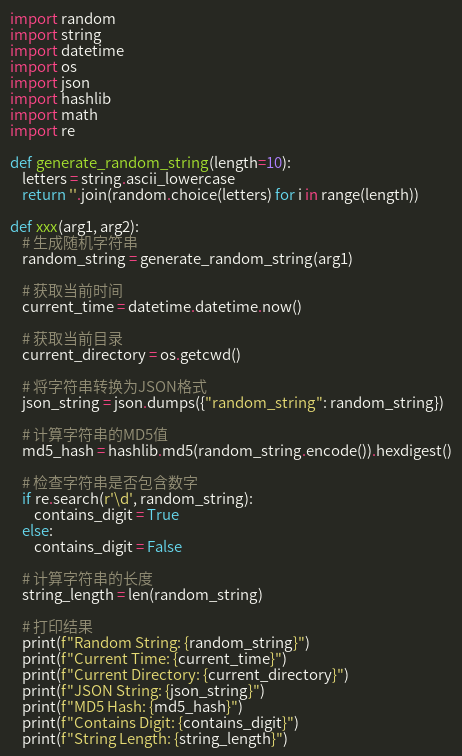Code introduction
The code randomly selects and uses different modules from the Babel library to import and execute functions. Depending on the randomly selected module, different operations are performed, such as getting a calendar, retrieving Plone information, getting the Plone intranet root directory, getting the timezone, or processing Twig nodes.
Technology Stack : The code uses different modules from the Babel library to import and execute functions. Depending on the randomly selected module, different operations are performed, such as getting a calendar, retrieving Plone information, getting the Plone intranet root directory, getting the timezone, or processing Twig nodes.
Code Type : The type of code
Code Difficulty :
def randomize_module_imports():
import random
from babel import calendars, plone, ploneintranet, pytz, twig, util
# Select a random module from the list
selected_module = random.choice([
'calendars',
'plone',
'ploneintranet',
'pytz',
'twig',
'util'
])
# Generate a random function name based on the selected module
function_name = f"import_{selected_module}_module"
# Define the function using the selected module
code = f"""
def {function_name}(arg1, arg2):
if '{selected_module}' == 'calendars':
# Use a calendar from the babel.calendars module
calendar = calendars.gregorian()
return calendar.months
elif '{selected_module}' == 'plone':
# Use a feature from the babel.plone module
from plone import api
return api.portal.get()
elif '{selected_module}' == 'ploneintranet':
# Use a feature from the babel.ploneintranet module
from ploneintranet import api
return api.get_site_root()
elif '{selected_module}' == 'pytz':
# Use a feature from the babel.pytz module
timezone = pytz.timezone('UTC')
return timezone.localize(datetime.datetime.utcnow())
elif '{selected_module}' == 'twig':
# Use a feature from the babel.twig module
from twig import NodeVisitor
class MyVisitor(NodeVisitor):
def visit(self, node):
return 'Visited node of type %s' % node.get_type()
visitor = MyVisitor()
return visitor.visit(node)
elif '{selected_module}' == 'util':
# Use a feature from the babel.util module
from babel import util
return util.get_global_timezone()
"""
return code
# Output the generated function
print(randomize_module_imports())

